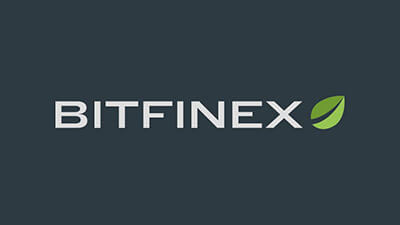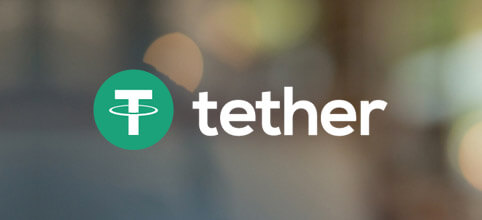 Warnings of Another Giant Bitcoin Exchange
Warnings of Another Giant Bitcoin Exchange 
Cover art/illustration via CryptoSlate. Image includes combined content which may include AI-generated content.
Bitcoin is having a very successful year. Its steak of monumental round-number milestones seems to be unending. As it streaks toward $12,000, it’s also finding real-world implementations in commerce and financial investment.
Mainstream investment banks are beginning to offer bitcoin-related products on their platforms. With CME Group Inc. launching its bitcoin futures contracts later this month and big banks including the once skeptical J.P. Morgan Chase considering the offering, the message is clear: cryptocurrencies have shed their opaque past, and they’re on a clear trajectory into the mainstream.
Except when they’re not.
The back alley of the crypto ecosystem

Around the world, unregulated cryptocurrencies exchanges transact millions of dollars worth of cryptocurrencies each day. Perhaps none is more notorious or more prolific than Bitfinex.
It describes itself as “the world’s largest and most advanced bitcoin trading platform,” a dubious claim, that, like the platform itself, is unverified and unprovable.
Moreover, it was recently revealed through the Paradise Papers that Bitfinex also controls Tether, a cryptocurrency with its value tied directly to the U.S. dollar investments in the currency. It has been alleged, but not proven that Bitfinex has been printing new Tethers in order to run up the price of Bitcoin
To make matters even worse, both Bitfinex and Tether have experienced notable hacks on their platforms that have cost millions of dollars. In the past several years, Bitfinex has endured several significant attacks in which thieves stole $400,000 and $75 million worth of Bitcoin. To cover these losses, Bitfinex passed the costs onto platform users
Last month, Tether announced a system breach in which cybercriminals stole more than $30 million worth of cryptocurrency.
Why this matters to everyone
It would be easy to write off Bitfinex or Tether and the people that support them. If they are acting unwisely, one could assume, then they will ultimately pay a steep price for their poor choices. However, it’s unlikely that the fallout would be limited to a single bad actor. Unregulated crypto exchanges are already damaging cryptocurrencies’ brand reputation, and continued hacks on their platforms could have concrete consequences for the entire crypto ecosystem.
As The New York Times reports,
“Even many people who believe in virtual currencies worry that the mixture of loose controls and booming trading at the world’s largest exchange is likely to cause trouble for all the investors piling into virtual currencies, even those who don’t go near Bitfinex.”
When Mt. Gox, another unregulated cryptocurrency exchange, collapsed after hackers stole millions of dollars worth of cryptocurrency, the effects were felt far beyond just Mt. Gox’s investors. When Mt. Gox’s platform unexpectedly disappeared, “Bitcoin’s value fell close to 23%.” That was back in 2014. Bitcoin is now more than ten-times more valuable, which would magnify the consequences of another Mt. Gox-like episode.
What’s being done about it?
At this point, very little.
A few days ago, a man named Ronn Torossian, a newly hired outside spokesman for both Tether and Bitfinex, blamed “questionable actors” for raising doubts about their financials and controls.
Torossian promised that a full audit “will be released as soon as possible,” he wrote, noting that an interim report found the company had $442.9 million of cash as of Sept. 15 to “fully back” the Tether tokens that were outstanding. Torossian said in the statement,
“Bitfinex abides by all existing laws and reporting requirements such as KYC/AML. The exchange “works closely with financial regulators, law enforcement, compliance personnel, and financial institutions to provide the highest possible level of protection and service for its customers.”
What’s next?
The very nature of cryptocurrencies means that they are decentralized, which means that they are distributed on computers around the world. They are beyond the reach of any single government, corporation, or committee. As a result, there is little that can be done by traditional outlets to intervene.
That doesn’t mean they aren’t trying.
Exchanges operating in the United States are subject to regulation, and there have been attempts to fine or otherwise control international crypto-exchanges. Realistically, this is almost all that they can do.

As Bitcoin enters the mainstream financial industry, users will ultimately decide how to treat ostentatious, unregulated exchanges like Bitfinex. Even with all this uncertainty and negative attention, investors are continuing to move millions of dollars through these exchanges each week.
In many ways, this is a tangible expression of voting with your dollar. If investors would actively avoid unregulated exchanges, then market forces would force changes that could improve the experience for everyone.
Cryptocurrencies and blockchain are meant to be active, democratic entities that are regulated by their uses, not by government institutions.
There is little to like about Bitfinex and Tether, but as long as investors continue to pump money into the platforms, they will have an outsized influence on crypto markets. That’s a dangerous prospect, but one that can be actively improved as more and better-regulated exchanges continue to develop.





































































































